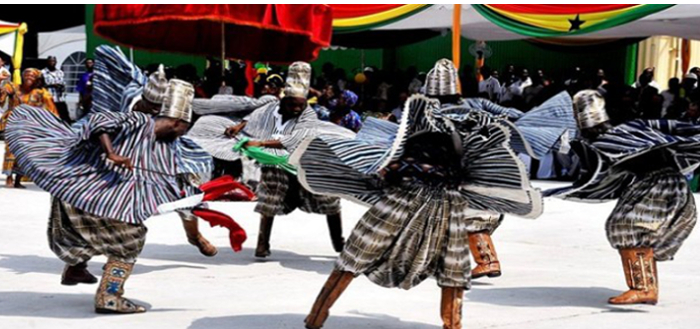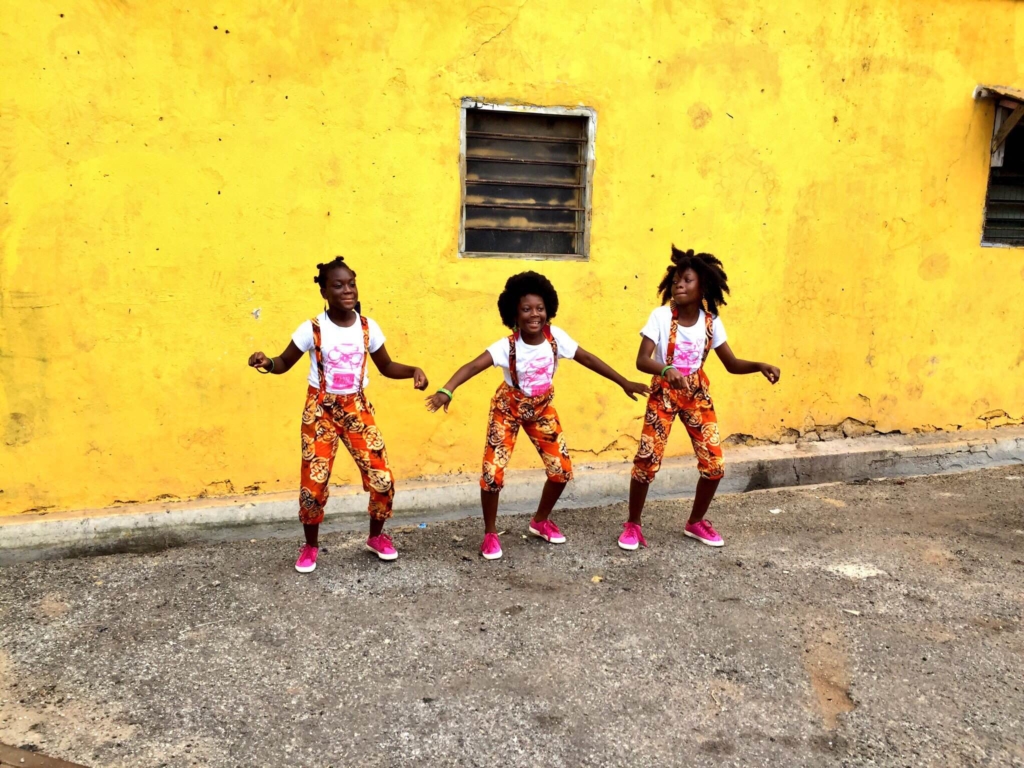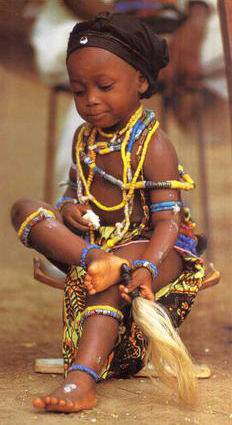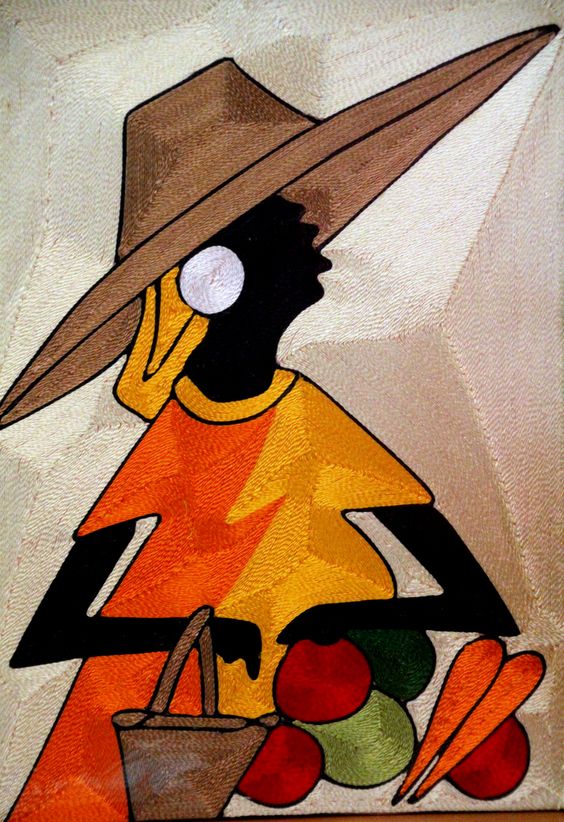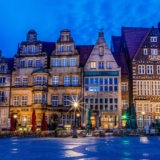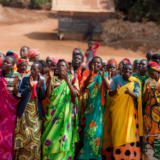There is a place where the presence of ants is so remarkable that a city was named after them – Accra (from nkran, ants). Yet even more remarkable are the traditions of the people inhabiting it.
Accra is the capital of Ghana and is mainly inhabited by the Ga. They call the city Gaga.

Ga families
The Ga are one of the many ethnic groups living in Ghana. Their society is organized along distinguishing patterns dominated by gender relations and the cult of their ancestors.
There are houses of women and houses of men. When people get married they don’t move in together – the wife continues to live with her mother and the husband continues to live with his father. This separation of sexes takes place around the age of 6, until then, both boys and girls live with their mothers.
Although living separately, brothers and sisters belong to the same group as their father. This group is a we (IPA: /we/). All people belonging to a we have a common male ancestor and use a specific set of names.
Ga names
The importance of community, togetherness, children and parenthood come together with the appreciation of ancestors and magic beliefs to create the Ga naming traditions.
We names
Each we uses a specific set of names which show the birth order, the gender of the child and the family branch which the child belongs to.
For example, Lamte, Lamtei and Lamkwei could be the names of your first three sons, while your first three daughters would be called: Lamile, Lamioko and Lamkai. Notice any patterns? They all start with “Lam” showing they belong to the same family branch.
These names are transmitted from grandparents to children, skipping the parents’ generation, so the same names are repeated over and over again.
The cycle breaks when a name is associated with unpleasant events or attributes. Let’s say for example Awule is considered a terrible person, no one in Awule’s we will give this name to his children. However, this name would continue to be used in other groups where the name holds no unpleasant connotation.
Gbobalo’s name
There is a special situation in which explicitly bad terms, like Kuntso – toilet are used as names.
If a family loses several children one after another, the Ga believe that it is actually the same child who keeps returning to torment his parents. This child is called gbobalo and parents use unusual names to make it stay.
Some names are welcoming, like Djokoo – come and sit down, while others are used to defy gbobalo in a sort of reverse psychology game: Kwan da bo – the way is clear (so you can leave), Bo oba – it was you who came (so, you can go).
Twin names
Twins also have their very own set of names. Girls are called Akwele or Akuoko and boys are named Akwete/Akuete or Oko.
Having twins in the family is something quite special, so the children born after them receive distinctive names as well. The first child born after twins is called Tawiah, the second one is called Ago and the third one Abam. Tawiah is also used for the third child in a set of triplets and Ago for the fourth one in a set of quadruplets.
Say your number
As you’ve seen, birth order is important for the Ga. They have a set of names which reflect exactly this, without giving any clues about one’s family. The first three girls are called: Dede, Koko and Kal, while the first three boys have the names: Tete, Tete (the pronunciation is somehow different), respectively Kwei or Mensah.
Name your parents
Although Ga women don’t change their name after marriage, once their first child is born, they start to be known by that child’s name. For example, Lamile will be known as Odoi nye (Odoi’s mother).
Also, once Amartey’s first child is born, he can be addressed as Amaa-tse if he has a son, or Ameeletse if he has a daughter.
Which Dede?
The constant inheritance of names over generations transformed Tetetse (Tete’s father) and Dedenye (Dede’s mother) in appropriate names for any Ga. So if you don’t know one’s name you can simply refer to him as Tetetse or Dedenye, if she’s a woman.
These two names go for everybody, but what can you do when you want it to be clear about whom are you talking about? The good old nicknames based on physical attributes, like Tsuru (fair colored) or Din (black) come in handy.
The cyclic journey
Ga traditional beliefs imply that every person lives in a cyclic journey which alternates the passage through the spiritual world with time spent in the mortal world. It is believed that once in the spiritual world, the ancestors help increase the power of the gods, which, in return, take care of their family members.
Each group is under the watch of a specific god, which recognizes the people under its protection through their names. This is why Ga names indicate which we one belongs to.
The cyclic naming system of the Ga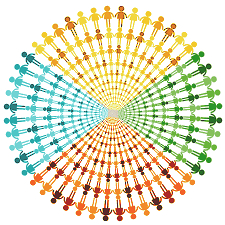 is a spiritual continuum which assures the safety and wellbeing of the living by honoring the ancestors. Its repetitive nature makes it difficult to identify a specific ancestor, yet it leads to an easy recognition of one’s relatives.
is a spiritual continuum which assures the safety and wellbeing of the living by honoring the ancestors. Its repetitive nature makes it difficult to identify a specific ancestor, yet it leads to an easy recognition of one’s relatives.
The Ga society is continuously recreated trough the usage of the same names. There are names for extraordinary events, special names for mothers and fathers, names for members of the same we and nicknames to make things clearer. This standardized naming system is fit for a variety of situations, whether positive or challenging, and it reinforces the community’s values: the appreciation of children, the respect for their forebears and the belief in the spiritual world. By using the same names as their ancestors, the Ga honor their past and mark the existence of an eternal spiritual community.
Photo Sources:
- Ghana Theater Festival dancers http://citifmonline.com/wp-content…Ghana-Theatre-Festival-620×330.jpg
- Chale Wote Street Art Festival https://circumspecte.com/wp-content…chalewote-hakeemadam.jpg
- Dipo girl in traditional costume http://academics.smcvt.edu/africanart2/Trixi/images/homepage.jpg
- Emmanuel Tettah art https://ro.pinterest.com/pin/562316703444835782/

